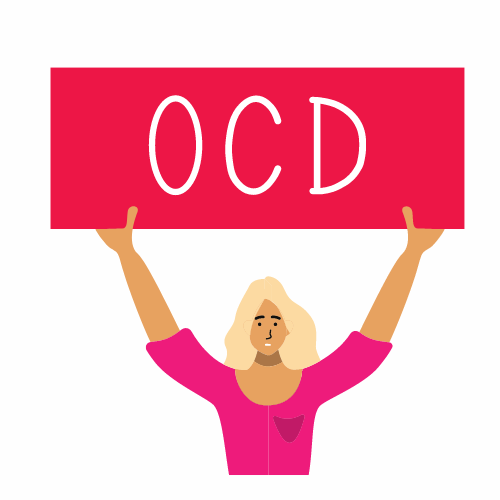
ADHD and Self-Compassion: A Guide for Women 💖
ADHD, or Attention Deficit Hyperactivity Disorder, can significantly impact women's mental health, often leading to feelings of inadequacy, frustration, and low self-esteem. However, incorporating self-compassion into daily life can transform these negative experiences into opportunities for growth and self-acceptance. This guide explores the profound benefits of self-compassion for women with ADHD and offers practical strategies to integrate it into everyday routines.
Understanding ADHD in Women 🧠
ADHD manifests differently in women compared to men, often leading to a delay in diagnosis. Women with ADHD may struggle with inattentiveness, hyperactivity, or a combination of both. These challenges can affect various aspects of life, including academic performance, career progression, and personal relationships. The late diagnosis often results in women internalizing negative feedback and feeling misunderstood.
What is Self-Compassion? 🌸
Self-compassion involves treating oneself with the same kindness and understanding as one would offer a close friend. According to Dr. Kristin Neff, self-compassion consists of three key components:
- Self-Kindness vs. Self-Judgment: Being kind and understanding towards oneself rather than being critical.
- Mindfulness vs. Over-Identification: Maintaining a balanced perspective on one's thoughts and feelings.
- Common Humanity vs. Isolation: Recognizing that everyone experiences difficulties and failures.
Self-compassion differs from self-esteem in that it is not based on comparisons or achievements but on accepting oneself as inherently worthy.
The Role of Self-Compassion in Managing ADHD 🧩
Self-compassion is crucial for managing ADHD as it helps counteract negative self-perceptions, shame and internalized criticism. By fostering a kinder, more understanding relationship with oneself, women with ADHD can improve emotional regulation, increase resilience, and reduce the impact of ADHD symptoms on their daily lives.
Neuroticism and Inattentive ADHD 🌀
Neuroticism, characterized by negative emotions and self-criticism, is more pronounced in individuals with inattentive ADHD. Many women with this subtype have gone undiagnosed, experienced discrimination, and internalized those beliefs that they are inadequate. This often leads to low self-worth, mental health conditions, perfectionism, fear of mistake-making and failure, rejection sensitivity, and a focus on weaknesses rather than strengths. Self-compassion directly counters these negative thought patterns, making it particularly beneficial for those with this subtype. By cultivating self-compassion, women with inattentive ADHD can reduce suffering and enhance their overall well-being.

Practical Ways to Incorporate Self-Compassion into Daily Life 🌼
Incorporating self-compassion as a coping skill into daily routines can be transformative for women with ADHD. Here are some practical strategies:
Being Mindful of Self-Talk 💬
Pay attention to the inner dialogue. Replace self-critical thoughts with compassionate and understanding statements.
Keeping a Journal 📓
Journaling can help organize thoughts and information, process emotions and mistakes, and track progress. It also provides a space to practice self-compassion through writing.
Practicing Self-Compassionate Dialogue 💖
Talk to yourself as you would to a loved one. Offer encouragement and understanding, especially during difficult times.
Self-Compassion Phrases and Affirmations ✨
Using self-compassionate phrases can help shift negative thought patterns. Examples include:
- "This is hard, but I'm doing my best."
- "Everyone makes mistakes; it's part of being human."
- "I am worthy of love, self-care, and understanding."
Self-Compassion and Making Mistakes 🔄
Self-compassion allows individuals to see mistakes as growth opportunities rather than failures. By understanding that everyone makes mistakes, women with ADHD can reduce self-criticism and foster a growth mindset.
The Connection Between Self-Compassion and Mindfulness 🧘♀️
Mindfulness enhances self-compassion by promoting a non-judgmental awareness of one’s thoughts and feelings. Practical mindfulness exercises, such as deep breathing and meditation, can help women with ADHD stay grounded and compassionate towards themselves.
Self-Compassion Interventions for ADHD 🛠️
Several interventions can help foster self-compassion in women with ADHD:
Mindfulness-Based Cognitive Therapy (MBCT) 🌟
MBCT integrates mindfulness practices with cognitive therapy techniques to enhance well-being and increase self-compassion. This approach can be particularly beneficial for individuals with ADHD, helping them manage their symptoms more effectively.
Compassion-Focused Therapy (CFT) 🌈
CFT aims to help individuals develop compassion for themselves and others. While not specifically designed for ADHD, CFT can address self-criticism and promote self-acceptance, making it a valuable therapeutic option.
Mindful Self-Compassion (MSC) Program 🧘♂️
The MSC program combines mindfulness practices with self-compassion strategies to help individuals accept their imperfections and develop a compassionate inner dialogue.
Research on ADHD and Self-Compassion 🔍
Research indicates that self-compassion can significantly impact the mental health of adults with ADHD. Studies suggest that higher levels of self-compassion are associated with reduced anxiety, depression, and stress, as well as improved emotional regulation and resilience.
Addressing Core ADHD Challenges with Self-Compassion 🛡️
Self-compassion can help address core ADHD challenges by improving attentional control, cognitive flexibility, and working memory. By adopting a compassionate approach, women with ADHD can enhance their ability to focus and manage their symptoms effectively.
Self-Compassion as a Protective Factor 🌟
Self-compassion acts as a protective factor by buffering against low self-esteem and feelings of inadequacy. It promotes self-acceptance and resilience, helping individuals navigate the challenges of ADHD with greater ease.
The Benefits of Self-Compassion for Mental Health 💚
Practicing self-compassion offers numerous benefits for mental health, including reduced anxiety, depression, and stress. It also improves overall well-being and quality of life by fostering a more positive and supportive inner dialogue.
Practical Tips for Developing Self-Compassion 🌺
Developing self-compassion takes time and practice. Here are some tips to get started:
Daily Practices 🌞
Incorporate self-compassion into daily routines through mindfulness exercises, journaling, and positive self-talk.
Therapy and Coaching 🗣️
Seek support from therapists and coaches who can help integrate self-compassion into therapeutic and coaching sessions.
Self-Compassion Exercises 📝
Engage in exercises designed to foster self-compassion, such as guided meditations, writing exercises, and group discussions.
Acceptance, Resilience and Happiness 🌈
Self-compassion is a powerful tool for women with ADHD, offering a pathway to greater self-acceptance, resilience, and well-being. By incorporating self-compassion into daily life, women with ADHD can navigate their unique challenges with kindness and understanding.

FAQs ❓
Can self-compassion help reduce ADHD-related stress and anxiety?
Yes, self-compassion can help manage stress and anxiety by promoting a kinder and more understanding relationship with oneself.
How does self-compassion differ from self-pity?
Self-compassion involves recognizing one’s difficulties without judgment, while self-pity often involves feeling sorry for oneself and feeling isolated in one’s struggles.
What are some quick self-compassion exercises I can do daily?
Daily exercises include mindfulness meditation, positive affirmations, and self-compassionate journaling.
How can I teach self-compassion to my child with ADHD?
For children, model self-compassionate behavior, use encouraging language, and engage in activities that promote self-kindness and understanding. Learning about neurodiversity-affirming ideas and educating your child about them is also important. Seeing ADHD strengths rather than weaknesses helps develop self-compassion and support you and your child during challenging moments.
Are there any resources or books on self-compassion for ADHD?
Yes, several books and online resources are available, including "Self-Compassion: The Proven Power of Being Kind to Yourself" by Dr. Kristin Neff.
More pages on the site to check out:
Medical information obtained from this website is not intended as a substitute for professional care. If you suspect you have a problem, you should consult a healthcare provider.



